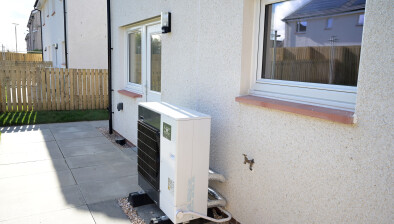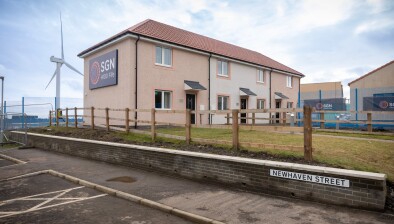2030 renewables target reiterated as MSPs prepare to debate Scotland’s energy future

MSPs will today debate the future of energy in Scotland, with a focus on expanding the role of renewables in helping to cut carbon emissions in non-power sectors such as heat and transport.
The debate, initiated by Highland MSP Maree Todd, follows the publication of a study earlier this year that concluded that producing half of all of Scotland’s energy across heat, transport and electricity from renewables by 2030 is achievable.
According to the report, published by WWF Scotland, Friends of the Earth Scotland and RSPB Scotland, a Warm Homes Act and a national energy efficiency programme would make significant contributions towards the “necessary and achievable” target.
Welcoming the debate, WWF Scotland director, Lang Banks, said: “It’s great to see the future of Scotland’s energy being debated by MSPs. Many thanks to Maree Todd MSP for making this important issue the topic of her motion.
“Analysis has shown that a 50 per cent renewables target for all our energy needs by 2030 is not only needed, but that it is achievable. Ministers should now make this a Scottish Government target and bring in the policies needed in its forthcoming energy strategy.
“Scotland is already seeing the economic and social benefits of shifting our electricity system to clean, climate-friendly, renewables generation. However, with electricity accounting for just one quarter of our energy use, it’s time to begin to reap the same benefits by increasing the use of renewables in our heat and transport sectors.”
Rebecca Bell, senior policy officer at RSPB Scotland, said: “We’d like to see the Scottish Government set a 50 per cent renewable energy target for 2030. Bringing down the emissions of our whole energy system, including strong action on heat and transport, is crucial to protect our natural environment from climate change. We know that, if we plan the roll out of renewables carefully to avoid our most sensitive places for wildlife, we can meet these targets in harmony with nature.”
Dr Richard Dixon, director of Friends of the Earth Scotland, said: “Investing in tackling climate change brings many other benefits, including helping create jobs in low-carbon sectors, improving people’s living conditions and cleaning up the toxic traffic pollution that blights our towns and cities. Any way you look at it, a rapid transition to renewable energy makes sense.”
Jenny Hogan, director of policy at Scottish Renewables, added: “Renewables are already providing enough power to provide around 57 per cent of the electricity we use in Scotland, but much more remains to be done in the heat and transport sectors.
“A new target suggested by Scottish Renewables in January – for at least 50 per cent of Scotland’s total energy needs to come from renewable sources in 2030 – would enable us to continue to build on the economic and environmental benefits our industry is already delivering.
“The Scottish Government’s planned new Energy Strategy gives us a chance to make the radical changes required if we are to get anywhere close to meeting our future climate change targets.
“It also gives us the opportunity of delivering the significant economic and social benefits which further development of our renewable energy industry can bring.
“Changes in our energy system such as the increasing use of energy storage, together with emerging renewable energy technologies like green gas, tidal and wave energy, provide opportunities for Scotland to lead the world.
“The Energy Strategy is a chance for the Scottish Government and the whole public sector to build on success to date and retain Scotland’s place at the forefront of renewable energy development – creating jobs, keeping bills down and combating climate change.”

















